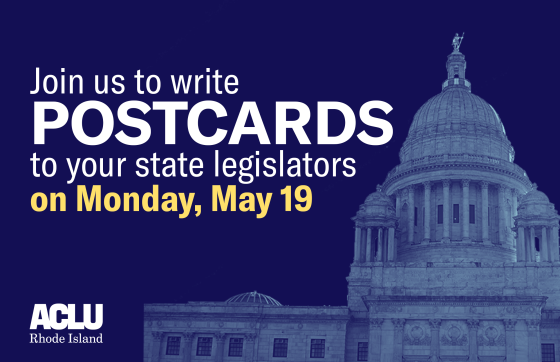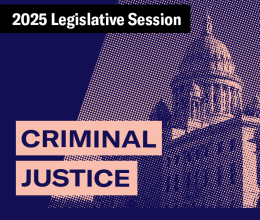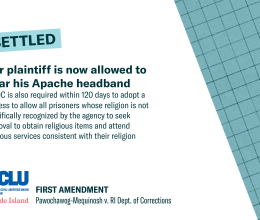Civil liberties often face their greatest challenges in times of crisis, and the COVID-19 pandemic is no exception. Governor Raimondo has taken many commendable steps to address this medical emergency, but her decision authorizing a wide-scale police roadblock at the I-95 border is a dangerous intrusion on civil liberties that cannot be justified on public health grounds and should be rescinded.
Last week, the Governor gave the State Police and National Guard the authority to stop any car with New York license plates coming in from the Connecticut border in order to determine the driver’s destination and, if staying here, to impose a mandatory two-week quarantine. Two days later, she expanded the directive to authorize stopping every car with out-of-state plates.
Though she called this a “pinpointed” approach, it is hard to think of a more blunderbuss tactic than stopping thousands of cars based solely on the car registration’s origins. Under this policy, people traveling from a state that is much less of a “hot spot” than Rhode Island are questioned by police, while Rhode Islanders coming back from, say, a two-week trip to New York City cross the border unimpeded. It is irrational to stop, and impose a mandatory quarantine, only on people who live and vote in a different state even if they have an identical risk of exposure as a Rhode Island resident. This approach is not only ineffective and a diversion of resources, it raises a host of constitutional concerns and has created a disturbing “us vs. them” mentality.
Singling out non-Rhode Island license plates cannot constitute the type of “reasonable suspicion” necessary under the Fourth Amendment to allow police to pull cars over and ask invasive questions of the driver, no matter how benign the goal. The arbitrary undermining of this invaluable constitutional right sets a dangerous precedent that cannot be easily undone. The use of National Guard members wearing vests with the label “military police,” and the potential for stops to spill over into broader law enforcement investigations when confused drivers miss the signs requiring them to pull off the road, heighten these concerns.
Other Constitutional provisions were specifically designed to prevent states from discriminating against other states in order to prevent the division such conduct would cause. Contrary to that goal, the Governor’s directive promotes a local tribalism that encourages scapegoating of “outsiders” for the health crisis we are facing.
After the ACLU criticized the Governor’s original order singling out New Yorkers, social media posts were filled with xenophobic references to “those people” who should “go back where they came from.” A few days ago, Block Island’s police chief had to publicly urge residents not to “devolve into a modern-day episode of ‘Lord of the Flies,’” after he received numerous complaints of aggressive harassment against out-of-staters living on the Island. This type of behavior is deeply disturbing but also inevitable once we arbitrarily manufacture an “enemy” in a crisis.
The irony is that when the first directive ordering all New York cars to be stopped was issued, the Department of Health had acknowledged that our state was already in the midst of “community spread” of the virus, and the Governor expressed frustration that half of all Rhode Islanders were ignoring social distance orders.
The ACLU appreciates that this emergency requires strong measures, but history warns us that it is precisely at these times that we must be vigilant to prevent a crisis from being used to justify unwarranted erosions of fundamental rights. The horrors of World War I prompted the passage of laws leading to the imprisonment of individuals merely for speaking out against the war; the bombing of Pearl Harbor led to Japanese-American internment camps; and the tragedy of 9/11 led to rushed passage of the PATRIOT Act that, to this day, continues to do damage to our civil rights.
The Governor has repeatedly emphasized that it is social distancing that will help contain this virus. Giving police the power to stop people on the highways based solely on the design of their license plate is ill-fitted to this solution and will have unfortunate ramifications for all of our liberties down the road.
This post was also published in the April 5 edition of the Providence Journal.



